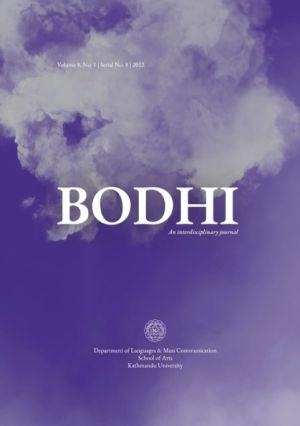Narrative Writing as Reflective Practice: Its Therapeutic Relevance
DOI:
https://doi.org/10.3126/bodhi.v8i1.46454Keywords:
Reflective Practice, Narrative Writing, Narrative Medicine, NarrativeAbstract
Reflection refers to an activity or process in which our lived experience is recalled, considered, and critically evaluated. Reflective practice is an increasingly accepted methodology for professional development. Such practice develops an ability of continuous learning while creatively applying current and past experiences along with reasoning to unfamiliar events as they occur. Reflective practice helps doctors to maintain their professional competence on existing knowledge, attitude and behavior. Narrative writing, in this regard, is one of the several ways of reflective practice in which practitioners regularly write reflections about their situation, thought, and action. The reflective practice, also known as ‘Narrative medicine’, has been widely used in medical field. Such practice of narrative medicine can lead to produce more ‘humane’ doctors who can improve the treatment satisfaction in both, the doctors and patients. Hence, narrative writings can improve the treatment and increase the professional competence of the doctors.
Downloads
Downloads
Published
How to Cite
Issue
Section
License
© Department of Languages and Mass Communication, School of Arts, Kathmandu University, Nepal




